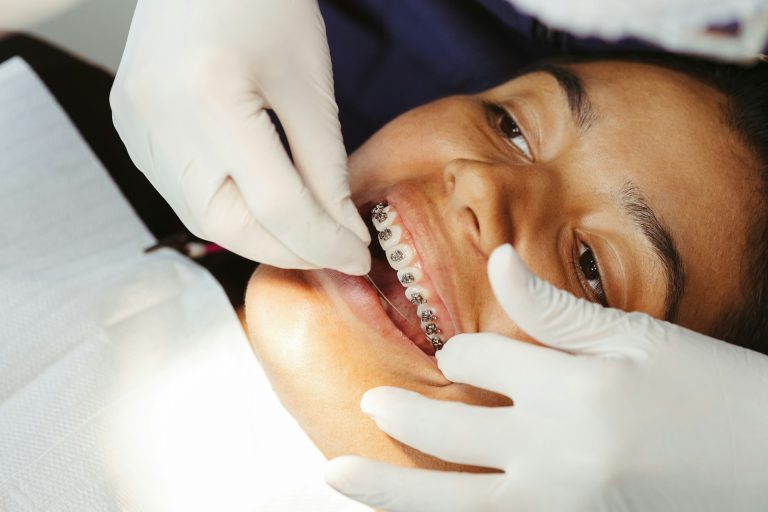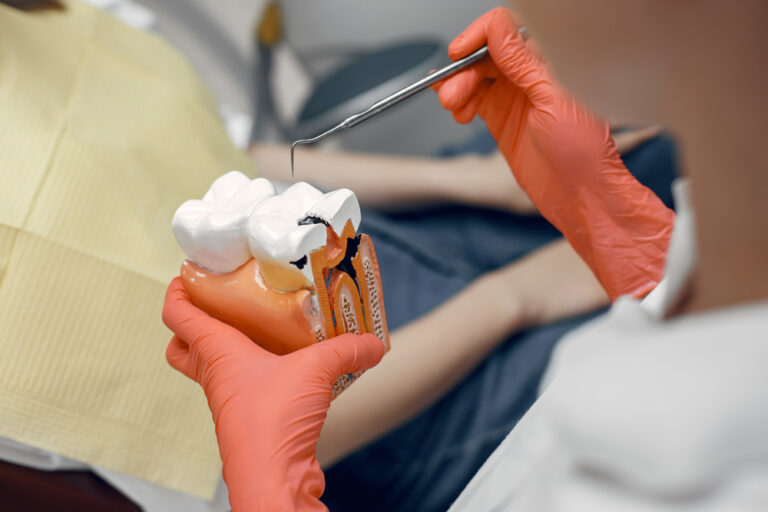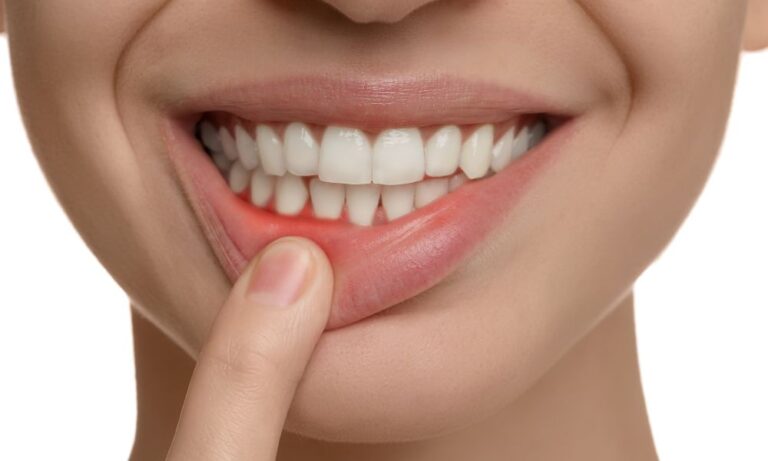Keeping our gums healthy is crucial for maintaining overall oral health and a beautiful smile. Gums support our teeth and protect them from bacteria. Ignoring gum care can lead to problems like gingivitis and periodontitis, which can cause pain and tooth loss. We can ensure our gums stay in good shape by adopting simple daily habits.
One essential habit is brushing our teeth correctly. Proper brushing techniques help remove plaque and food particles that can cause gum disease. Flossing is another important habit, as it cleans between the teeth and along the gum line, where a toothbrush might not reach. Interdental cleaners can also be helpful in maintaining clean gums.
Using the right mouthwash can add an extra layer of protection against gum disease. Mouthwashes kill bacteria that brushing and flossing might miss. Finally, a balanced diet is key to strong gums. Eating the right foods provides the nutrients that our gums need to stay healthy. Avoiding harmful foods and choosing gum-friendly options can greatly affect our oral health.
Consistent Brushing Techniques for Healthy Gums
Brushing our teeth correctly is fundamental for maintaining healthy gums. We should brush at least twice a day using a soft-bristled toothbrush and fluoride toothpaste. Each brushing session should last about two minutes to ensure we cover every surface of every tooth.
To start, position the toothbrush at a 45-degree angle to the gums. This helps to remove plaque at the gum line effectively. Brush using small circular motions, not back-and-forth strokes, to avoid damaging the gums.
Make sure to brush all teeth’ outer surfaces, inner surfaces, and chewing surfaces. Pay special attention to the gum line, as plaque often builds up there. Don’t forget to brush your tongue as well to remove bacteria and keep your breath fresh.
Electric toothbrushes can also be helpful. They provide consistent and gentle pressure, making cleaning around the gums and along the gum line easier. If using an electric toothbrush, let it do the work—simply guide it along your teeth and gums. Replacing your toothbrush or brush head every three months ensures you maintain effective cleaning.
Benefits of Flossing and Interdental Cleaners
Flossing is just as important as brushing when it comes to gum health. It removes plaque and food particles from between our teeth and under the gum line, areas that a toothbrush can’t reach. We should floss at least once a day to keep our gums clean and healthy.
Here’s how to floss correctly:
1. Use about 18 inches of floss, winding most of it around one finger of each hand, leaving a few inches to work with.
2. Hold the floss tightly between your thumbs and forefingers and gently insert it between your teeth.
3. Curve the floss into a C shape against one tooth, sliding it up and down along the side of the tooth and under the gum line.
4. Repeat on the other side of the gap, along the adjacent tooth.
Interdental cleaners, such as dental picks and tiny brushes, can be effective alternatives or supplements to flossing. They are specifically designed to clean between teeth and around braces or bridges. Interdental brushes come in various sizes to fit different gaps.
Using these once a day can improve gum health by ensuring that no plaque is left behind between our teeth. Regular use of these tools helps to prevent gum inflammation and gum disease.
Mouthwash Choices to Enhance Gum Health
Using mouthwash adds an extra layer of protection to our daily oral care routine. Mouthwashes can reach areas that brushing and flossing can’t, helping to reduce plaque, fight bacteria, and keep our gums healthy. When choosing a mouthwash, it’s important to look for one with fluoride, which helps strengthen teeth and prevent decay.
An alcohol-free mouthwash is a good choice if we have sensitive gums or dry mouth. Alcohol can cause irritation and dryness, which can aggravate gum problems. Mouthwashes with antimicrobial properties are beneficial as they help to kill bacteria that lead to gum disease.
We should use mouthwash twice a day after brushing and flossing. Simply swish it around in our mouth for about 30 seconds and then spit it out. Avoid eating or drinking for at least 30 minutes afterward to allow the ingredients to work effectively.
Nutritional Tips to Strengthen Gums
A balanced diet is essential for gum health. Eating the right foods provides the nutrients our gums need to stay strong and healthy. Foods rich in vitamin C, like oranges, strawberries, and bell peppers, are great for promoting gum health. Vitamin C helps to repair connective tissues and fights inflammation.
Calcium-rich foods, such as milk, cheese, and yogurt, are also important. Calcium strengthens the bones that support our teeth and gums. Leafy greens like spinach and kale are packed with vitamins and minerals that support overall oral health.
Drinking plenty of water throughout the day helps to wash away food particles and bacteria, keeping our mouth clean and hydrated. Avoiding sugary snacks and drinks is crucial because sugar feeds the bacteria that cause tooth decay and gum disease. Eating a variety of fresh, whole foods can help maintain healthy gums and a healthy mouth.
Gum Health Goals: Daily Habits for a Healthy Smile
Taking care of our gums is essential for overall oral health. By incorporating consistent brushing techniques, flossing and using interdental cleaners, choosing effective mouthwash, and following a nutritious diet, we can keep our gums healthy and prevent gum disease. These daily habits make a big difference in maintaining long-lasting gum health.
Healthy gums are the foundation of a healthy smile. If you’re concerned about your gum health or need professional advice, it’s important to seek help. At Colorado Gum Care Northglenn, CO, we specialize in comprehensive gum care and preventive treatments in Northglenn, CO.
Don’t wait until minor gum issues become major problems. Schedule an appointment with us today to ensure your gums stay healthy and strong for years to come!







